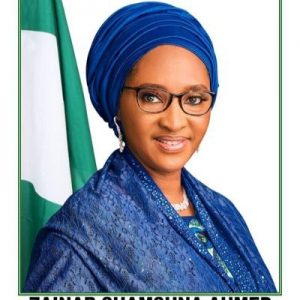
Nigeria’s powerful economic think-tank, the Nigeria Economic Summit Group (NESG) has proffered four key priorities areas the government would need to pay attention to ensure economic recovery, growth and sustainability in 2021 and beyond.
Apart from deliberate policies to achieve macroeconomic stability as well as ensuring policy and regulatory consistency, the NESG called on the government to carry out reforms in the key sectors of the economy and human capital development.
The recommendations were contained in its special publication on the Nigerian economy, “2021 NESG Macroeconomic Outlook” launched on Tuesday.
Three case scenarios
In the publication, NESG relied on the country’s key macroeconomic indicators for the periods between 2021 and 2025 to project three case scenarios of best, business as usual and worse situations about the country’s economy.
The best-case scenario, the NESG said, is premised on the assumptions of rapid increase in oil price (above $50 per annum), domestic crude oil production and rapid increase in government capital expenditure.
With this, the Group expects the Nigerian economy to not only exit recession with a gross domestic product (GDP) growth rate of 2.9 percent, but for the economy to become strong and resilient in 2025 with a 7.5 percent growth rate.
Other key indicators under this scenario are that inflation rate would near a single digit by 2025, with a steady decline in the rates of unemployment and underemployment, and a rapid increase in government revenue.
A Business-as-Usual case is based on assumptions of a sluggish rise in crude oil prices (slightly above the 2021 budget benchmark of $40 per barrel) coupled with a relatively stable domestic oil production and a mild increase in government capital expenditure per annum.
Under this scenario, the NESG said the country’s economic growth would rebound at 0.9 percent and gradually improve in the next couple of years.
Other key indicators would be slight improvements in high but declining inflation, slight increase in government revenue, elevated unemployment and underemployment.
In the worst case premised on the assumptions of a sharp fall in oil prices (below the 2021 budget benchmark of $40 per barrel) due to the impact of COVID-19, shortfall on domestic oil production (in compliance with OPEC quota) and a decline in capital expenditure.
With that scenario, the NESG said the Nigerian economy would remain in recession until 2022 and will only recover with less than 2 percent growth rate per annum.
Other key economic fundamentals such as, inflation would perform poorly, maintaining a double-digit per annum, huge decline in government revenue growth, as well as, very high rates of unemployment and underemployment.
Several industry projections agree with NESG business-as-usual scenario that the Nigerian economy would exit recession in 2021 with a weak growth rate of 0.9 percent, against African Development Bank (AfDB) estimate of 1.1 percent; World Bank (1 percent) and International Monetary Fund (IMF) 1.5 per cent.
To lay the foundation for a speedy economic recovery in the short term and inclusive economic growth in the future, the NESG said the government’s most important agenda in 2021 must be to prioritize on the four issues.
Macroeconomic stability
On macroeconomic stability, considering the country’s volatile macroeconomic environment, characterized by a steep economic growth, acute foreign exchange (FOREX) shortages and volatility, and deteriorating current account position, priority attention must be on achieving stability.
While the current economic structure in the country is the primary driver of macroeconomic instability in Nigeria, many other policy and non-policy factors that have caused shockwaves to the economy must be reviewed.
Some of the policy factors include foreign exchange management rigidity; the inertia to implement the needed pro-market reforms in crucial sectors such as liberalization of downstream oil and gas sector, deregulation of the energy sector, and harmonization of monetary and fiscal policy direction.
Other factors include insecurity, high level of corruption, high unemployment and under-employment rate, policy inconsistency and perceived limited capacity of the Nigerian government to properly implement many of the reforms initiated to drive the economy.
“Our approach for Nigeria to achieve a stable macroeconomic environment is through a three-pronged policy strategy, namely monetary stability, effective fiscal management, and good governance and effective citizenry management,” the NESG said.
On monetary policy Stability, the NESG emphasized the need for the independence of the Central Bank of Nigeria (CBN), stability of the domestic currency; targeting inflation at single digits and strengthening the banking system.
To ensure effective fiscal management, the NESG stressed the need to expand the non-oil revenue and transparency in tax collection; consider debt relief to achieve debt sustainability; explore alternative financing and non-debt instruments for budget deficit financing as well as reflect national interests in budget and sub-national spending.
Good governance and effective citizens engagement, the Group said, would promote open markets and fair competition; ensure private sector engagement on advocacy for policies and regulatory reforms as well as build public confidence by stabilizing domestic currency and policy direction.
Policy & regulatory consistency
The NESG lamented the series of challenges that have hindered the country’s economic prosperity and inclusive development, namely insecurity, corruption, poverty & inequality, dwindling domestic & foreign investment and exacerbating socio-economic conditions.
At the core of these challenges are policy misfit and regulatory inconsistency/overlaps.

Citing the example of the closure of the land border, which was swiftly implemented without proper analysis of the potential winners and losers, the NESG said the duration of the closure and reforms needed to position local industries to take advantage of the closed borders.
Also, the NESG said there was often a lack of a central vision, ideology and goals which are crucial in ensuring coherence of policies and reforms within and across the different levels of government.
It stressed the need for policymaking to be driven by the need to create public value between what the people value and what is of value to the people.
“Policymakers must bear in mind that private investments, particularly Foreign Direct Investment (FDI) tend to move towards economies with stable policy environment. Policy makers must be guided by clear rules, processes and practices that must be followed before crucial policy decisions are made or altered,” the Group said.
Sectoral reforms
On sectoral reforms, the NESG noted that investment in Nigeria has remained below potential, with real investment as a percentage of GDP below 20 percent.
The NESG identified factors responsible for this to include corruption, government anti-big business mindset, government agencies harassing investors, poor private sector engagement in policy formulation, long/unpredictable government approval process, frequent policy changes that make long-term planning difficult.
Others are smuggling because our borders are too porous, poor tariff measures, erratic power supply, bad roads, poor public utilities, multiple taxation by federal and state agents, lack of skilled labour, poor work ethic, worsening security situation, corrupt judiciary, too many sacred cows; insufficient investment incentives; difficulty in getting visas; access to long-term capital and high cost of doing business.
Human capital development
On human capital development, the NESG said that given the country’s key goals of achieving economic recovery in 2021 and sustaining growth into the future, the imperative of investment in human capital development cannot be over-emphasized.
Besides, apart from COVID-19 which has exposed the inadequacy of key personnel in the health sector, the NESC said the human capital divide in the education sector is equally in dire need of urgent attention.
Consequently, the Group said the current school curriculum which was not designed to empower the youths with skills needed in the workplace or skills needed to contribute positively to the society must be reviewed.
Most social unrests, the NESG noted, were usually a direct consequence of higher unemployment and underemployment among the youths in Nigeria.
Consequently, it stressed the need to revive technical and vocational education as key for narrowing the skills gap.
“The outbreak of COVID-19 has made it imperative to promote digital learning following schools’ closure across the world, including Nigeria.
“Preparing the Nigerian youths for future jobs, which would require digitization and automation are the core elements of the Fourth Industrial Revolution,” the NESG said.
With Nigeria at a turning point at the moment, the NESG said, what needs to be done for the economy to come out of the current recession, was about holistically deploying appropriate measures to sustain the economy on a strong growth path accompanied by massive job creation and poverty reduction.
The Group said the Nigerian government needs to reverse the current recessionary trend and build a more resilient economy that depends on the four key priorities – macroeconomic stability, human capital development; holistic sectoral reforms, and policy and regulatory consistencies, to boost private sector investment toward economic recovery efforts in 2021 and beyond.
Besides, there is need for an exemplary leadership, alongside strong political-will to implement tough reforms and clear visions that align with improved political and business environment.
“The Nigerian government at both federal and state levels in 2021 must be deliberate and proactive to counter the effects of the COVID-19 pandemic. Urgency and intensity of reforms must be the new priority.
“Policymakers must understand that the business-as-usual scenario will only lead Nigeria down the drain of economic hardship, wider income inequality and increasing poverty.
“Therefore, addressing the country’s myriad of socio-economic problems such as insecurity, high unemployment and underemployment, corruption, huge poverty and inequality gap etc., using the priority areas as the pillars will require effective leadership,” the NESG said.




